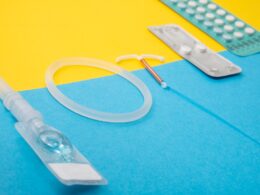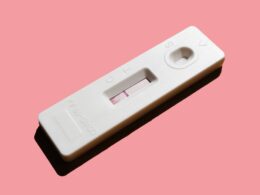Chlamydia and gonorrhea are sexually transmitted infections that can be passed on to others. Symptoms can appear between one week and three months after unprotected sex.
You should avoid sex until you finish your antibiotic treatment and the infection has been cleared. You should also get retested for chlamydia after 3 months to make sure that the infection has been completely cured.
Single-dose antibiotics
Chlamydia is a bacterial infection that can cause a variety of symptoms. It can be spread through unprotected vaginal, anal and oral sex, and may also be transmitted by a pregnant woman to her fetus. Symptoms can take weeks, months or even years to show up, making it easy for people who have chlamydia to go undiagnosed and untreated. If left untreated, chlamydia can cause damage to the urethra and fallopian tubes. It can also lead to infertility and cervical cancer.
Chlamydia can be treated with a single-dose antibiotic. However, it is important to avoid sex for 7 days after you’ve finished treatment. Correct use of latex condoms can reduce, but not eliminate, the chance of passing chlamydia and gonorrhea to your partner.
During the first seven days after treatment, you should not have vaginal, anal or oral sex, even if you’re using a condom. After the seven-day period, you can have sex, but be sure to get tested for chlamydia again in three months to make sure you’re not re-infected.
You can get tested for chlamydia and other STDs by visiting a clinic or asking your doctor to send a sample to the lab. The test is fast, accurate, and relatively painless. You can also get a full sexual health check online with K Health. This service includes a test for syphilis, gonorrhea, and chlamydia.
Multi-dose antibiotics
If you’re diagnosed with chlamydia, your provider will probably prescribe antibiotics to treat the infection. They should be taken exactly as directed, even if your symptoms go away. You should also avoid sex until your treatment is complete and the infection has cleared. If you want to have sex, make sure you use a condom. You should also tell your sexual partners and ask them to get tested and treated.
If untreated, chlamydia can cause serious health problems. These include permanent damage to the fallopian tubes, uterus or vagina (ectopic pregnancy). It can also lead to an infection of the tube that carries sperm to the testicles (epididymitis), which may result in pain and swelling in the testicles. In addition, if left untreated, chlamydia increases your risk of developing herpes, HIV or other infections.
Chlamydia can recur, so it’s important to practice safe sex and get regular STI screenings. The good news is that if you take the right antibiotics at the right time, chlamydia can be completely cured.
The most common way that people become infected with chlamydia is through unprotected sex. Because chlamydia can be passed from person to person, it’s important to use protection and to stay abstinent until your antibiotics are done. Once your antibiotics are done, it’s important to wait seven days before having sex.
Waiting seven days after treatment
It is important to avoid sexual activity for the duration of your treatment, which usually lasts seven days. This will help you to prevent passing the infection on to your sexual partners. You should also tell your partner(s) about your chlamydia diagnosis and ask them to get tested and treated as well. If they don’t, they can still transmit chlamydia to you even after you’ve been cured.
A chlamydia infection can cause permanent damage to the fallopian tubes, uterus, and vagina in women. This can lead to infertility and pelvic inflammatory disease (PID) or a recurrent miscarriage. It can also cause ectopic pregnancy, which is dangerous for both the mother and baby. It can also cause epididymitis in men, which is a painful inflammation of the tube that carries sperm to the testicles.
Symptoms of chlamydia can take weeks, months, or years to show up. For this reason, it is important to practice safe sex and use condoms for all types of sex. Using a water-based lubricant is also a good idea. You should also make sure to use male condoms for anal sex and female condoms for vaginal or oral sex. It is also important to get a chlamydia test every three months to make sure you’re not re-infected. You can do this by contacting your local GP, sexual health clinic, or Department of Health Partner Notification Officers.
Get retested after three months
Chlamydia is one of the most common sexually transmitted infections (STIs). It can lead to serious health problems, including pelvic inflammatory disease and infertility for women. It is important to get tested and treated for chlamydia as soon as possible.
After treatment, it is recommended that you wait seven days before having any sex with your partner. This includes vaginal, anal and oral sex. It is also recommended that you use a condom during sex. Practicing safe sex is the best way to prevent chlamydia from spreading between partners. It is important to get retested after three months to make sure that you are no longer infected with chlamydia.
You should tell your sexual partners about your chlamydia infection, and they should be offered a test. It is easy to cure with antibiotics, so you should make it a priority to get tested and treated. Besides chlamydia, it is important to get tested for other sexually transmitted diseases such as gonorrhea and hepatitis A.
Once you have been cured of chlamydia, your symptoms should go away within a few days. However, it is not uncommon for the symptoms to reappear after you have been healed. If you notice any new symptoms, contact your healthcare provider immediately. This will help your body recover from the infection. You can learn more about chlamydia and how to protect yourself by visiting K Health.









